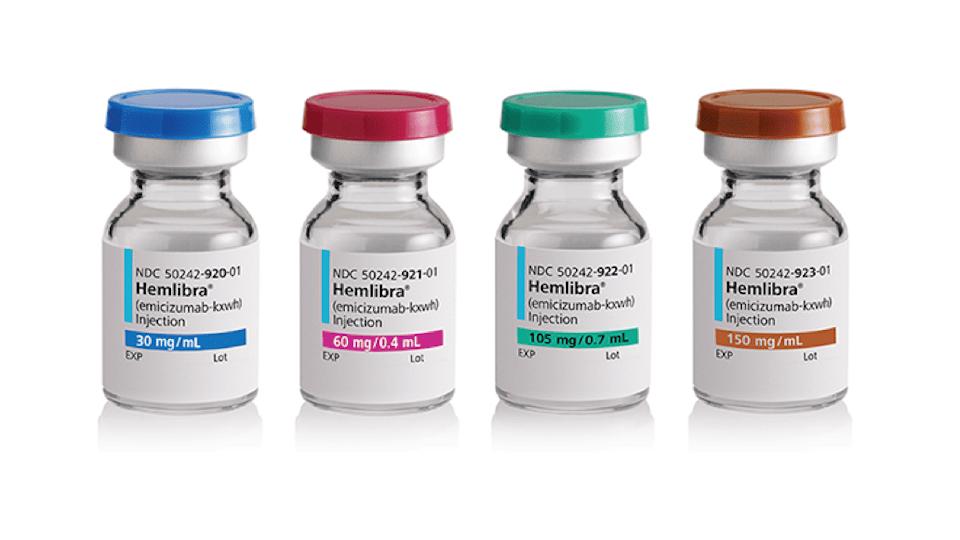FDA grants fast review for Roche's haemophilia drug

The US regulator has granted a fast review for Roche’s new haemophilia drug, emicizumab, a blockbuster hope for the company as its older drugs face competition from biosimilars.
Roche’s Genentech unit said the FDA had granted a faster six-month priority review, as opposed to the standard 10-month period.
The FDA is set to make a decision on emicizumab before 23 February next year.
Emicizumab has been trialled as a once-weekly subcutaneous treatment for adults, adolescents and children with haemophilia A with factor VIII inhibitors.
Nearly one in three people with haemophilia A develop inhibitors to standard factor VIII replacement therapies, which limits treatment options and increases the risk of life-threatening bleeds and repeated bleeds, particularly in joints, that cause long-term damage.
The filing was based on results from the phase 3 HAVEN 1 study in adults and adolescents 12 years of age and older, as well as interim results from the phase 3 HAVEN 2 study in children younger than 12 years of age.
While Roche has amassed strong evidence to back efficacy of emicizumab in haemophilia prophylaxis, there are concerns over the drug’s safety.
Clinical trials showed adverse events including thrombotic microangiopathy, damage to blood vessels in vital organs.
But despite the safety concerns, EP Vantage predicts sales of $1.5 billion by 2022, a sizeable portion of a global market worth around $11 billion that is currently dominated by Novo Nordisk and Shire.
Roche needs to find new revenue sources as its "big three" blockbuster drugs - Avastin for various cancers, Herceptin for breast cancer, and Mabthera/Rituxan for inflammatory diseases and blood cancer, face a mounting threat from cheaper biosimilars.
Emicizumab is an investigational bispecific monoclonal antibody designed to bring together factors IXa and X, proteins required to activate the natural coagulation cascade and restore the blood clotting process.
It is being tested in pivotal phase 3 studies in people 12 years of age and older, both with and without inhibitors to factor VIII, and in children younger than 12 years of age with factor VIII inhibitors. Additional trials are exploring less frequent dosing schedules.












